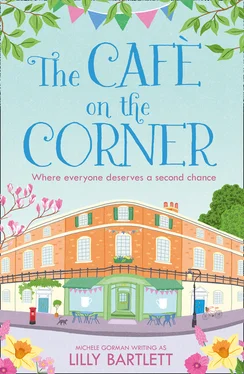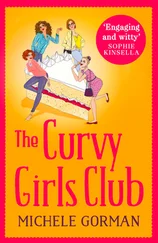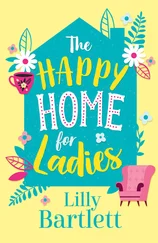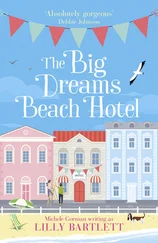I’m sitting at our solid old dining room table, oblivious to the fact that I’m about to make a mortal enemy. I don’t even know Leo yet, or Lou or Joseph or most of the customers who will become my friends. Morning sun streams through the wide bay window in the front room, throwing a long rectangle of light along the floor. It’ll reach my chair in another hour, but I’ll be long gone by then.
That window is my favourite part of the whole house. It’s where Daniel and I looked out over our wedding reception at everyone in the world we love. It’s also where we took Auntie Rose’s advice not to wait till after the party to christen our new marriage. While it’s beyond mortifying to hear bedroom suggestions from your seventy-something great aunt, she was right. And there wasn’t even a sofa there yet. We used to live life on the edge.
Now our edges are blunt and you don’t really get any view from the window unless you stand up to look out over the window boxes – crammed full of colourful pansies and winter primroses – past the wrought-iron fence and over the quiet road into the garden square beyond.
I can’t claim credit for the flowers. Mrs Ishtiaque comes over every few months to plant new ones after I’ve killed the previous lot. It was involuntary plant slaughter, Your Honour.
Mrs Ishtiaque has lived next door to my parents my whole life. She looks out for me like I’m one of her daughters. She says that newly-weds should always have blossoms in their lives. Blooming flowers, blooming love, she claims. Though we’re not technically newly-weds anymore. I’ll have been married to Daniel two years in July. Sometimes it feels like two decades.
The twins are in lockdown in their high chairs, happily finger-painting stewed apples over everything. They’re a couple of Picassos, those two.
It’s a surprise to see them both painting, actually. They almost never do the same thing at the same time. If one is sleeping, the other’s awake. One’s breakfast is the other’s playtime. The only things they seem to synchronise are tantrums and bowel movements.
I wouldn’t believe they were related if they hadn’t put me through thirty hours of labour.
‘Mama! Mamamamamamamamamama!’ screams Grace, blinking fast to dislodge a bit of apple from her eyelid. She couldn’t care less about the smears all over her face. It’s the attention she wants.
‘Have you made a mess, my love?’ She squirms but lets me wipe her chubby cheeks. By the time I’ve got most of the stewed fruit off her, the cloth is filthy.
‘Grab another wet cloth for Oscar, will you?’ I call to Daniel as I spot him weaving his way towards us through the piles of laundry and strewn toys.
Changing direction, he calls, ‘Clean-up in aisle six,’ from the kitchen.
‘Clean-up in aisles one through five as well,’ I mutter, looking around.
No one would ever call me house-proud – Mum holds that title every year running – but even I’m getting fed up with the mess. ‘Could you please fold the laundry while I get them cleaned up?’ I ask Daniel. ‘It’s the pile on the sofa.’ As opposed to the ones on the floor, the chair or the coffee table.
He plants a swift kiss on top of my head and plonks a soaking wet cloth into my hand. That’ll need wringing out before I assault our child with it. I want to clean Oscar, not drown him.
‘Can’t I have my brekkie first? I’m rahly running late for work,’ says Daniel.
My lips twitch when he says brekkie. And rahly . He’s still trying to speak commoner like the rest of us do around here, but his posh accent really shows up the difference in our upbringings.
He didn’t need to utter a word the first time I saw him for me to know he was different. Picture the scene: I’m twenty-five and it’s our first day of class – an architecture course at City Lit in Central London – and everyone shuffles in to find a seat. The classroom is functional and bare aside from the battered plastic chairs and scarred desks – no oak-panelled walls, antique tomes or dreaming spires for us mature students. Most of us are huddled into wool coats against the bite of January, laden with satchels and rucksacks and nerves.
It wasn’t Daniel’s strong jawline or wavy blond hair that I first noticed, or his broad shoulders or long legs or the way his face crinkled into a friendly smile every time he caught someone’s eye.
It was his vivid green trousers as he stood to take off his duffel coat. Then he pulled off his dark V-neck jumper to reveal a bright yellow striped work shirt underneath. By the time he’d tied the jumper around his shoulders, the rest of us – clad in T-shirts or sweatshirts and jeans – were staring at him.
Mistaking our curiosity for friendliness, Daniel did what no one ever did on the first day of class. He started talking to strangers. You’d think he was catching up with old friends the way he asked everyone how far they’d travelled and whether this was their first course. Daniel was on a first-name basis with everyone within a few hours.
And that sums him up, really.
It’s not his fault he dresses the way he does. He grew up in one of those five-story white-fronted mansions in West London, with rooms stuffed full of masterpieces and precious artwork and a pond in the back garden. They had people who answered the door for them and made them their meals. They count most heads of state as friends and Daniel’s godfather is a lord. It took me a while to realise that his parents are very nice people, despite sounding like the upstairs family from Downton Abbey . What a world away from the council house where I grew up with Mum and Dad. Our furniture is more Ikea than iconic and our friends drink pints, not Dom Pérignon. I don’t run across many poshies in my day-to-day life, except for the ones who occasionally come this way to stuff fivers into G-strings at the local strip club. And I don’t date them.
With such an upbringing, Daniel sounds like he should be spoiled or at least a bit of an arse, right? It’s hard not to make assumptions when you hear about someone’s giant house and their servants and gap year holidays. But like I said, he’s kind and easy-going and generous, totally unflashy and not the least bit judgmental. It helped that I got to know all these things about him before I found out he was stonking rich. Otherwise, naturally I’d have presumed he was a wanker.
That doesn’t mean we’re not from different worlds, only that the differences are more about our accents and experiences, not the things that really matter. That’s why I do give him full marks for trying to fit in, even if the slang sounds wrong with his plummy pronunciation. Besides, he totally ruins it with his next remarks.
‘I’ll just put the seeded bloomer in to toast, yah? It’s the last of the loaf before Waitrose delivers again. I think we’re out of hummus too.’
He sounds straight off the estate, doesn’t he?
I stop wringing the sopping cloth into my half-drunk coffee cup. If I’m ever kidnapped, the police will be able to trace my last movements through the string of unfinished hot drinks I’ve left behind. ‘Having your seeded bloomer toast before or after you fold clothes won’t make a difference to your lateness, you know.’
When his face breaks into a cheeky smile, one dimple appears on the left side. That dimple! It hints at a mouth that’s usually lopsided with merriment. He can make me laugh at myself like nobody else. It’s one of the things that’s always charmed me. It would probably work now, but I’m too tired. ‘I think I’ll be more efficient, energy-wise, if I eat first,’ he says, glancing at his phone. ‘You’re right as usual, though. Just let me answer this one email. I’ll be quick.’
Читать дальше












